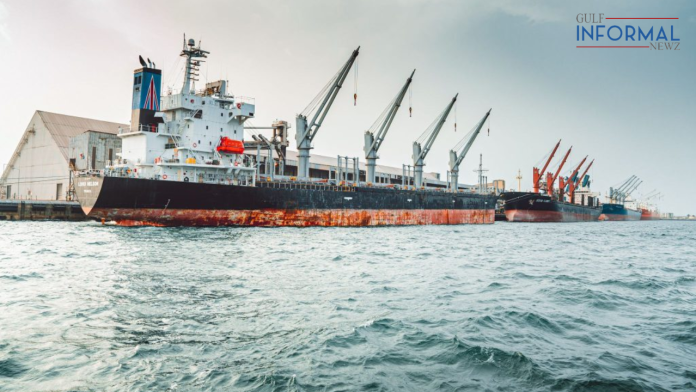Saudi Arabia’s Vision 2030, which aims to grow and diversify the economy, promote social responsibility, and increase employment opportunities, defines efficiency and outlines a thriving economy for businesses of all sizes, where technological advancement, especially internal logistics, is the main tool for achieving this goal.
The general situation in the arena of logistics and warehousing services in the Kingdom of Saudi Arabia is witnessing a major and fundamental transformation driven by a set of motives, from budget management to ensuring health and safety standards, as organizations across the supply chain strive to adopt automation in order to reduce operational costs, enhance production efficiency, and overcome the challenges posed by fluctuation. The result is the availability of manpower.
In fact, the global material handling equipment market is expected to reach $369.01 billion by 2032, while forecasts indicate that the automated material handling market in the Middle East and Africa will reach $1,885.8 million by 2026.
Also Read: Kuwait Petroleum International buys 50% of Italy’s Ecofox
The countries of the Middle East, in particular Kingdom of Saudi Arabia And the United Arab Emirates, by changing its direction towards economic diversification, directing investments to specialized manufacturing areas and encouraging tourism in order to enhance and increase non-oil revenue sources, as the two countries have the largest market shares in materials handling in the region, and are allocating huge investments in order to become major centers. Logistics and warehousing services.
Moreover, the breadth of industries, spanning from construction to e-commerce in the wider Gulf region, is a driving force for increasing demand for more efficient and modern material handling solutions, and this trend is driving the adoption of automation as a means of improving service quality in this sector. Industries.
Therefore, the Kingdom of Saudi Arabia’s Vision 2030, which aims to grow and diversify the economy, enhance social responsibility, and increase job opportunities, defines efficiency and outlines a prosperous economy for companies of all sizes, where technological progress, especially internal logistics services, is the main tool to achieve this. the goal.
Many industries need logistics technology to perform their assigned work, including e-commerce, food and beverage, manufacturing, as well as pharmaceuticals, partial fulfillment, banking, and many others. These industries are waiting for the opportunity to be in a position that enables them to provide world-class facilities that serve the region, and export to the world.
Integrating automation and robotics is a gradual approach that is in line with the Kingdom’s transformation plan, making it a strategic focus for entities such as Swisslog that works to support local industries using expertise, technology and solutions.
As the Kingdom of Saudi Arabia strategically positions itself as a global economic leader, investors enjoy compelling and irresistible opportunities within the Kingdom, and the shipping and logistics market, currently valued at $23.83 billion in 2023, is expected to witness strong growth, reaching 32.88 Billion dollars by 2029 with a compound annual growth rate of 5.52 percent.
This not only positions the Kingdom as a major player in the emerging markets of the GCC countries, but also highlights the potential for profitable investments in the logistics sector.
At the same time, Saudi Arabia is actively developing its digital infrastructure, recognizing the pivotal role that technology plays in modernizing logistics services, and this commitment to digital transformation is likely to streamline operations and enhance overall efficiency in the logistics industry.
As for warehouse automation, it not only saves time in completing critical tasks and enhances accuracy, but it also works to enhance the intelligence of the process in general, as companies are able, through this high efficiency, to move smoothly from the two-shift system to the three-shift system, ensuring Greater flexibility and efficiency, especially during peak periods such as the holiday season.
This increase in operational efficiency is in line with the broader economic transformation underway in the Kingdom of Saudi Arabia, which is characterized by a major investment plan worth $51 billion allocated to non-oil sectors. Strategic diversification is not only limited to alleviating dependence on oil revenues, but also puts a… The foundation for innovation and sustainable development.
As for investors looking for long-term growth prospects, exploring opportunities in various non-oil sectors has become an urgent strategy for them to adopt, and they must align their portfolios with the vision of the Kingdom of Saudi Arabia in order to achieve economic agility and flexibility.
Moreover, the reliance on robots in supply chain operations has witnessed a significant boom, leading to enhanced productivity and cost efficiency, and expectations indicate that by 2025, a very surprising 45 percent of manufacturing operations will be handled by robots.
This transformation promises not only to streamline operational workflows, but also to achieve a very significant reduction in defects, ultimately leading to defect-free operations. The strategic integration of robots across warehousing and logistics represents a critical response to the workforce challenges caused by the COVID-19 pandemic. Corona, which spread in 2020.
The impact of this proactive approach will extend to sectors such as e-grocery, retail, food and beverage, pharmaceuticals, healthcare and manufacturing, underscoring the necessity and inevitability of automation in dealing with the complexities of modern business environments.
While the Kingdom of Saudi Arabia is adopting automation technologies, it stands at the forefront of countries that are reshaping its economic path. These technological developments contribute greatly and fundamentally to the process of continuous development of the global supply chain, as the Kingdom’s commitment to innovation and technological integration is not limited to alleviating the severity of disruptions. Not only the future, but it also enhances its role as a major actor in shaping the future of global trade.
Also Read: Today Gold Rate in Saudi Arabia – 16th March 2024




